Live on the homepage now!
Reader Supported News
And there is still much more the West can and should do on the sanctions front. Every day that Putin’s army remains in Ukraine is a day that the free world should ratchet up new sanctions.
At the same time, one aspect of the sanctions regime urgently needs fixing: the wrongful punishment of Russian opposition leaders, human rights activists and independent journalists who fled their homeland rather than support Putin’s war of aggression. Now, many of them are stuck in places such as Georgia, Armenia, Kazakhstan, Israel, Turkey and Cyprus with only short-term tourist visas and limited access to their credit cards or European bank accounts. Some don’t even have passports or travel documents.
The fate of Dmitry Gudkov is illustrative. A decade ago, Gudkov was a young, charismatic rising star in the Russian parliament. Gudkov opposed many of the Kremlin’s favorite moves, such as the annexation of Crimea and the Anti-Magnitsky law (which sanctioned a number of U.S. officials and prohibited U.S. citizens from adopting Russian children). Back then, Gudkov was an elected member of parliament who sought to move his country toward democracy through peaceful cooperation, not confrontation, with other politicians. Today, however, Putin has demonstrated zero tolerance for any opposition.
So far, the democratic world has not done enough to help Gudkov and his family living in exile in Europe. He has been unable to open a bank account because he is considered a public official from Russia. He and his family entered Cyprus on tourist visas but can only obtain temporary resident status there if they open a bank account. Yet, his U.S. bank account has blocked his funds, pursuant to Executive Order 14024, and now requires a special license from the Office of Foreign Assets Control for their release.
Gudkov is a famous opposition leader and member of the Russian Anti-War Committee, a group of exiled Russian figures actively working against the war. Thousands of less well-known Russians who also fled after Putin’s invasion of Ukraine on Feb. 24 face similar challenges, but with little hope of convincing authorities that they deserve to access their credit cards and bank accounts or to receive visas, travel documents or temporary residency.
These are hard issues to fix. We should not give refugee status to Russians who support or were indifferent to the war — but we should certainly not punish those who actively resist Putin. It is in the long-term national interests of the United States, the E.U. and Ukraine to help those who have chosen exile over acquiescence with Putin’s policies. We should help them to foster opposition to the Kremlin — and especially those independent journalists who provide reporting that can filter back into Russia, offering urgently needed alternatives to government propaganda. Such Russians might someday return to their country and help to push it in a more democratic direction. The free world has every incentive to prepare for that day.
To help solve this problem, governments sanctioning Russian citizens should establish a “Russia freedom commission” of independent experts who could make recommendations about exiled Russian activists who need bank accounts, credit cards, travel documents, visas and work permits. Members of this commission could be drawn from the Russian Anti-War Committee, True Russia (another Russian group in exile dedicated to ending Putin’s war), human rights activists from both Russia and Ukraine, and nongovernment democracy promotion organizations that previously operated in Russia and therefore know the opposition movement well. A stamp of approval from this committee could help banks, landlords, credit card companies and governments when making decisions about these Russians living in exile.
The United States, the European Union, Britain, Canada and other democracies must also create special visa programs to actively encourage Russia’s best and brightest to emigrate. Even if such people don’t want to return to Russia any time soon, we should help them regardless. Encouraging brain drain also undermines the Putin regime over the long term by depriving the country of vitally needed talent. Those Russians with special skills already living abroad should be given accelerated opportunities to renounce their Russian citizenship and become citizens of their countries of residence. Israel and the Silicon Valley are just two places that have benefited tremendously from earlier waves of Russian emigration. We should be thinking creatively to facilitate this new wave now.
Sanctions against Russians in response to Putin’s barbaric invasion of Ukraine are both just and effective. But we need them to work more fairly to bring an end to this war. We should not be inadvertently punishing those Russians willing to risk everything to oppose Putin.
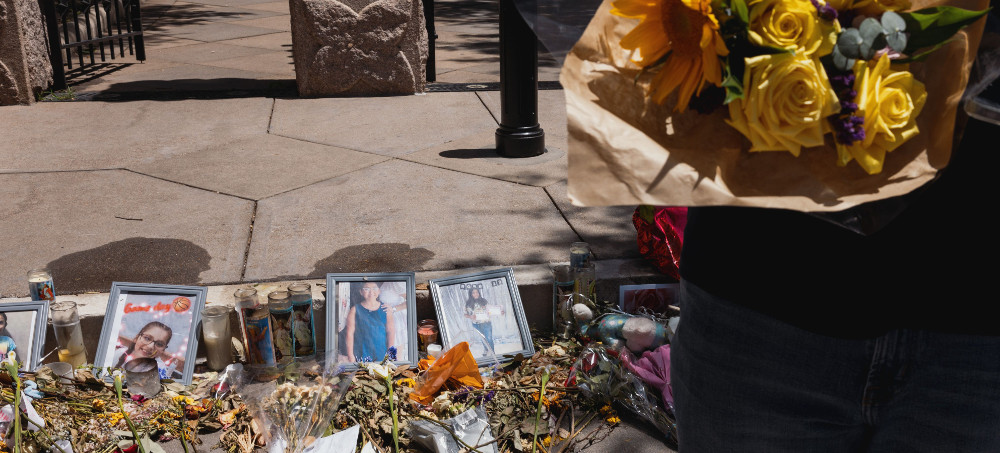 A memorial for the victims of the mass shooting at Robb Elementary School in Uvalde, Texas, is seen in Austin on May 31. (photo: Jordan Vonderhaar/Bloomberg)
A memorial for the victims of the mass shooting at Robb Elementary School in Uvalde, Texas, is seen in Austin on May 31. (photo: Jordan Vonderhaar/Bloomberg)
I am surprised that when I make this reference, multiple generations of Americans, White and Black, know what I mean. For those who don’t: Emmett Till was a 14-year-old Black youth who dared to say something sassy to an adult White woman in Mississippi in August 1955. For this “crime,” Till was abducted, tortured, shot in the head and dumped in a river by two White men who were later acquitted by an all-White Mississippi jury.
At Till’s funeral, his mother insisted on an open casket for her son, to in effect say to the world, “Look what they did to my boy.” Photographs of Till’s body, dressed in a suit but with a bloated, mutilated head and face, became an international spectacle, burned into the conscience of anyone who saw them. The images helped spark the civil rights movement, including the Montgomery bus boycott that began three months later in December 1955. Time magazine called the image of Till’s body one of the 100 “most influential photos of all time.”
I lack the moral standing to tell a parent to accept and approve, for the greater good, the public display of photos of his or her dead child. Only they can judge the additional weight that doing so would place on them, at a time when they are already struggling with unimaginable grief. Nor do I suggest the release of any images in particular. But something graphic is required to awaken the public to the real horror of these repeated tragedies. Robb Elementary School in Uvalde is a crime scene. If there were a case to go to trial, the prosecution would have to present publicly the shocking evidence of guilt. Put another way: Why must innocent schoolchildren, for the rest of their lives, carry the vivid memories of the executions of their teachers and classmates, while federal and state lawmakers (and the adult constituents who elect them) are spared?
Certain images do more than speak a thousand words. Some actually reveal to us what no words can adequately convey. Images have the capacity to shock the conscience into action, galvanize a population, and alter the course of history. Recall the the film of dogs and firehoses turned on Black demonstrators in Birmingham, Ala. (1963); the TV news footage of Alabama cavalry beating civil rights marchers at the foot of the Edmund Pettus Bridge (1965); the photo of a South Vietnamese police chief executing the Viet Cong fighter with a gunshot to the head (1968); the image of the screaming, naked “Napalm Girl” in South Vietnam (1972); the grainy images of LAPD officers beating Rodney King (1991); and the cellphone video of police officer Derek Chauvin’s knee on George Floyd’s neck (2020). Conversely, imagine if there had been no video of Floyd’s killing, leaving us with the initial Minneapolis police report, which was headed simply, “Man dies after medical incident during police interaction.”
With each mass shooting, I mourn for the victims, and I lament our democracy’s inability to do anything about this ongoing violence. Rarely has the answer to a major national problem been so obvious, yet so politically unobtainable. With each shooting, the particular circumstances and the shooter’s character and motives vary, but the common problem running through all these events is the ease with which dangerous individuals in this country can gain access to guns and ammunition. No constitutional, legal or human right is absolute. I cherish my driver’s license, but I do not fear that I will lose it if, in reaction to a spate of DUI deaths, the state cracks down on drunken driving. Consistent with the Second Amendment, and the freedom of a responsible adult to keep and bear arms, we can and must do more to limit the distribution of guns in the United States.
I am convinced that part of the reason we’ve been unable to do this is because the public and the politicians who purport to represent them lack a vivid understanding of the price being paid. The horror has been kept under wraps. To truly judge the trade-offs of the status quo, the death and destruction must be honesty revealed. We need a game changer. We need an Emmett Till moment.
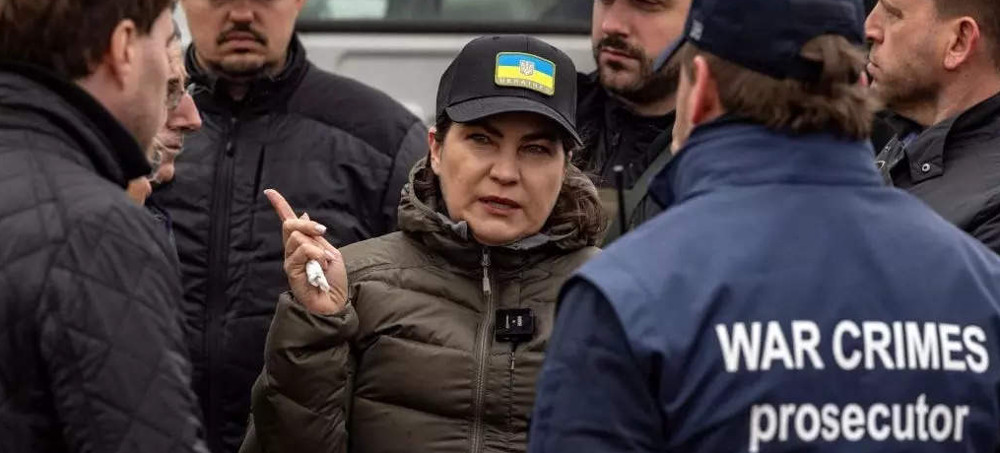 Ukraine's Prosecutor General Iryna Venediktova visits a mass grave in Bucha, on the outskirts of Kyiv, on April 13, 2022, amid Russia's military invasion launched on Ukraine. (photo: Fadel Senna/Getty)
Ukraine's Prosecutor General Iryna Venediktova visits a mass grave in Bucha, on the outskirts of Kyiv, on April 13, 2022, amid Russia's military invasion launched on Ukraine. (photo: Fadel Senna/Getty)
Prosecutor General Iryna Venediktova announced the upcoming case on social media on Monday, noting that it was the first attempt to secure a rape prosecution from Russia's invasion.
Venediktova named the accused as Mikhail Romanov, whom she said was part of a tank division that attacked the towns and villages around Kyiv.
In a Facebook post, translated from Ukrainian by Insider, Venediktova said Romanov was never captured, and so would be tried in his absence.
This would leave Ukraine unable to punish Romanov without capturing hm first, even if he were convicted.
Venediktova said Romanov and other Russian troops broke into a house in Brovary, part of the Kyiv region, in March.
She wrote that the men men "broke into a house in one of the villages and shot its owner. A drunk soldier, along with another occupier, immediately after the murder, raped his wife several times.
"They threatened the woman with weapons and violence even regarding her child, who was with her at the time.
"Even though the accused is not currently in our hands, he will not escape a fair trial and accountability before the law."
The account matches a previous incident described by prosecutors in March, which at the time was still under investigation. No suspect was named in the earlier account.
Venediktova told The Guardian earlier in May that the victim was able to identify Romanov from pictures on social media.
Venediktova told the publication that Ukrainian authorities did not know what happened to him, suggesting he may have been sent back to Russia, could still be fighting in Ukraine, or could have been killed.
The Guardian said it had contacted Romanov's apparent partner for comment but received no response. Insider was unable to locate any means of contacting Romanov.
The announcement came after a Russian soldier pleaded guilty in Kyiv to murdering a 62-year-old Ukrainian man.
That trial, the first of a Russian accused of any war crime in the invasion, ended in 21-year-old Vadim Shishimarin being sentenced to life in prison.
Ukrainian authorities say they have recorded 10,000 war crimes committed by Russian forces during the three-month invasion of Ukraine, including hundreds cases of rape and sexual violence.
In one of the most shocking cases, Ukrainian officials said that Russian soldiers raped a one-year-old boy, who later died of his injuries.
Investigators with the International Criminal Court are working with Ukrainian officials to gather evidence of possible war crimes. Russia has issued repeated blanket denials that its troops target civilians in any way.
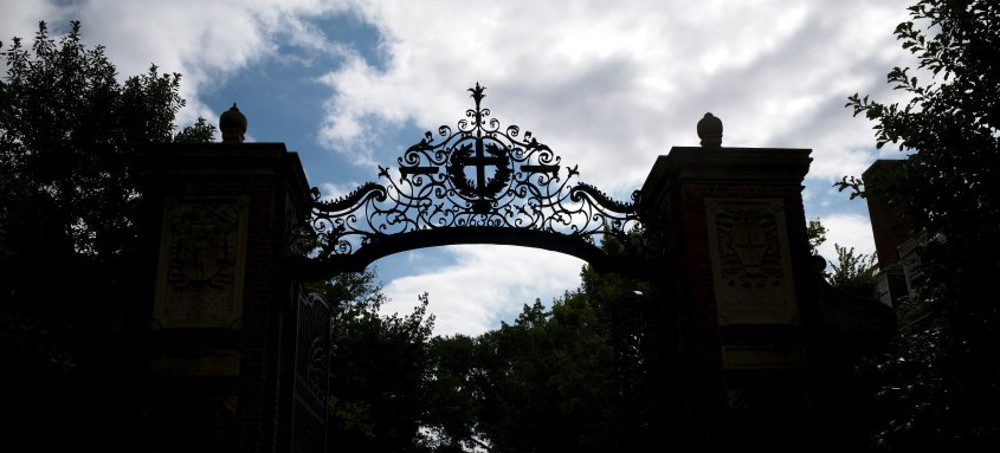 Gates to the Harvard University campus in Boston, Aug. 31, 2018. (photo: NBC)
Gates to the Harvard University campus in Boston, Aug. 31, 2018. (photo: NBC)
The Ivy League school is holding remains despite a decades-old federal law that requires institutions that accept federal funding to return Native American remains and cultural objects to their tribes and descendants
The Harvard Crimson cited a leaked draft report from the university's committee charged with studying how Harvard should treat human remains in its museum collections. Many of the remains are being held at the Peabody Museum of Ethnology and Archaeology.
That report shows that Harvard is holding the remains despite a decades-old federal law that requires institutions that accept federal funding to return Native American remains and cultural objects to their tribes and descendants.
Professor Evelynn Hammonds, chair of the University's Steering Committee on Human Remains, has criticized the Harvard Crimson for reporting on an "initial and incomplete draft report." She said the final report is expected to be released at a later date.
The news comes about a month after the Ivy League school pledged to spend $100 million to research and atone for its extensive ties with slavery.
That announcement coincided with the release of a report detailing many ways the college benefited from slavery and perpetuated racial inequality.
The report, commissioned by President Lawrence Bacow, found that Harvard’s faculty, staff and leaders enslaved more than 70 Black and Native American people from the school’s founding in 1636 to 1783. It cautions that the figure is “almost certainly an undercount.” Using historical records, researchers were able to identify dozens of enslaved people by name, along with their connection to the university.
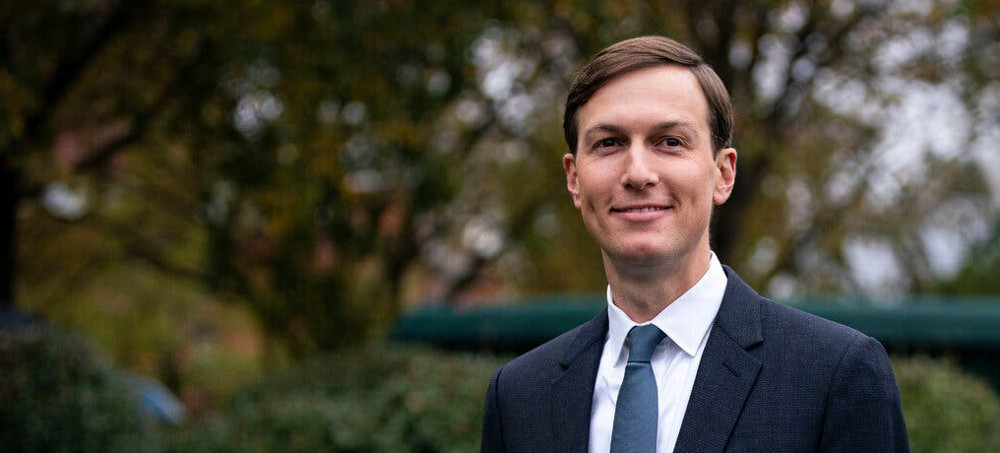 During his time in government, Jared Kushner developed a close rapport with Crown Prince Mohammed bin Salman, Saudi Arabia’s de facto leader. (photo: Al Drago/The New York Times)
During his time in government, Jared Kushner developed a close rapport with Crown Prince Mohammed bin Salman, Saudi Arabia’s de facto leader. (photo: Al Drago/The New York Times)
House Oversight Committee chair Rep. Carolyn Maloney (D-N.Y.) on Thursday sent a letter to Kushner seeking information about a $2 billion investment the Saudi government made in Kushner’s brand-new investment firm just six months after he left the White House.
“The Committee is concerned by your decision to solicit billions of dollars from the Saudi government immediately following your significant involvement in shaping U.S.-Saudi relations,” the eight-page letter says.
“Your close relationship with Crown Prince bin Salman [and] your pro-Saudi positions during the Trump Administration ... create the appearance of a quid pro quo for your foreign policy work during the Trump Administration.”
The Saudi Public Investment Fund (PIF) reportedly made the investment over the objections of its own advisers, who, among other things, were concerned about Kushner’s inexperience and a $25 million yearly management fee.
They were overruled by Saudi Crown Prince Mohammed bin Salman, who developed a relationship with Kushner during his time in the White House that was so close it reportedly alarmed senior government officials.
Just how close were they? After Salman personally approved the operation to assassinate and dismember Jamal Khashoggi, a Washington Post columnist and fierce critic of his policies, he enlisted Kushner’s help in cleaning up the political mess. The two often communicated via personal WhatsApp texts.
“Your support for Saudi interests was unwavering,” the letter notes, “even as Congress and the rest of the world closely scrutinized the country’s human rights abuses in Yemen, the murder of journalist Jamal Khashoggi by Saudi assassins tied to Crown Prince Mohammed bin Salman, and Saudi Arabia’s crackdown on political dissidents at home.”
In April, a presentation that Kushner’s firm gave to prospective clients was obtained by The Intercept, an investigative nonprofit news organization. The business model described therein, as characterized by the Oversight Committee, focuses on “trading on the relationships [Kushner] built while working for [his] father-in-law in the White House.”
A spokesperson for Kushner told The New York Times that Kushner “fully abided by all legal and ethical guidelines both during and after his government service.”
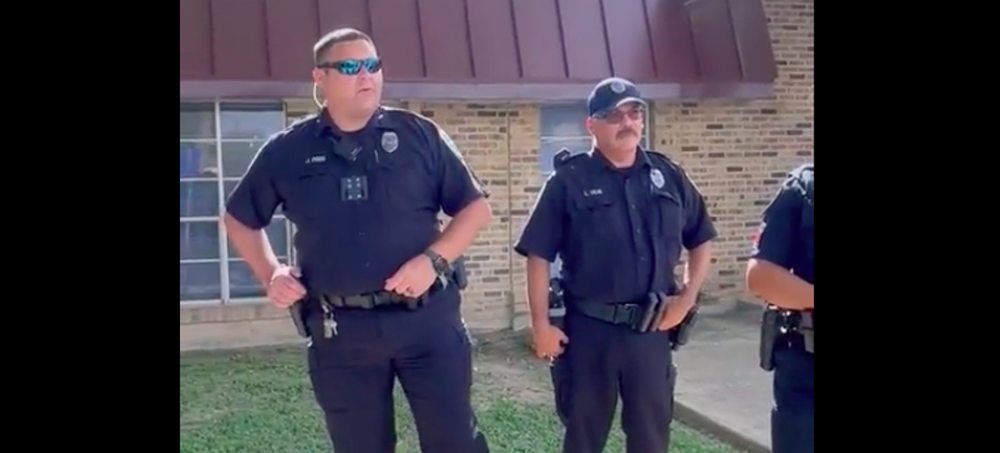 CNN reporter, Shimon Prokupecz, was threatened with arrest while covering the Uvalde shooting. (photo: CNN)
CNN reporter, Shimon Prokupecz, was threatened with arrest while covering the Uvalde shooting. (photo: CNN)
Shimon Prokupecz had earlier been grilling police chief Pedro Arredondo about his actions during the Uvalde shooting
CNN’s Simon Prokupecz shared a video of the altercation on his Twitter account shortly after he’d finished grilling Uvalde Independent School District Police Chief Pedro “Pete” Arredondo over his decision to hold off on breaching the classroom where a teenage gunman killed all 21 victims in the Robb Elementary School shooting earlier this month.
Mr Arredondo, the on-site commander of the deadly shooting, has come under scrutiny, both from senior law enforcement officials and the victims’ families, in recent days as more details from the violent massacre have been unearthed.
A specific point of contention in the 50-year-old officer’s handling of the shooting was his call to downgrade the incident from an “active shooter” to a “barricaded suspect” standoff, a decision that kept 19 officers inside the halls of the school from breaching the classroom for nearly an hour while the gunman continued to pick off more of the elementary-age victims from inside the fourth-grade classroom.
In total, 18-year-old Salvador Ramos killed 19 children, between the ages of 8 and 11 years old, and two adult teachers before being shot and killed by authorities.
Mr Prokupecz had initially confronted Mr Arredondo outside the school district’s offices in Uvalde on Wednesday, where he probed the school police chief about why he has reportedly not been cooperating with the Texas Department of Public Safety.
According to the agency’s director, Steven McCraw, Mr Arredondo isn’t responding to their requests for a second interview from investigators.
When this claim was put to the police chief outside the Uvalde’s ISD offices by the CNN correspondent, Mr Arredondo dodged questions and repeated the line that there would be more answers once the grieving families of the deceased children had had time to mourn.
“We have people in our community being buried … we’re going to be respectful to the family,” Mr Arredondo said in response to the reporter’s questions before denying Mr McCraw’s claim that he hadn’t been cooperating with investigators. “Just so everybody knows, we’ve been in contact with DPS every day.”
Following this confrontation, the reporter then shared a video of Uvalde ISD officers outside the school building where Mr Arredondo had retreated behind earlier.
In the video, officers can be heard relaying to the CNN correspondent that he and his crew will be charged with trespassing if they don’t leave the premises immediately.
“I’m just gonna let you know, Uvalde PD’s en route, once they get here, they’ll start issuing criminal trespasses for the property,” one of the Uvalde ISD officers can be heard saying.
The Independent reached out to both the Uvalde ISD and the Uvalde police department for comment but did not hear back in time before publication.
One of the other officers in the video can be heard saying to Mr Prokupecz and his crew that the Uvalde police department had wanted to give them an “initial warning” before they got down to the school district office and began issuing “criminal trespasses”.
“Okay, appreciate that,” Mr Prokupecz can be heard saying off-camera before the video clip ends.
Despite Mr Arredondo’s claims to the contrary, the DPS maintains that the officer is not cooperating with their investigation. On Tuesday, a spokesperson for Texas DPS told the DailyMail.com that he’d stopped assisting the agency.
“The chief of the CISD did an initial interview but has not responded to a request for a follow-up interview that was made two days ago,” Travis Considine told the news outlet.
The Independent reached out to the Texas DPS for comment on the claims that Mr Arredondo is not cooperating but did not hear back from them immediately.
The Uvalde ISD released a public statement on Wednesday, acknowledging that there are many “questions that remain” but noted that at this time they are unable to provide comment until the federal and state agencies had “completed their review”.
“UCISD has and will continue to work with law enforcement who are investigating the event and realise that many questions remain,” the press release reads. “Because the investigation is ongoing and information is evolving, we are going to reserve comment until all state and federal agencies have completed their review.”
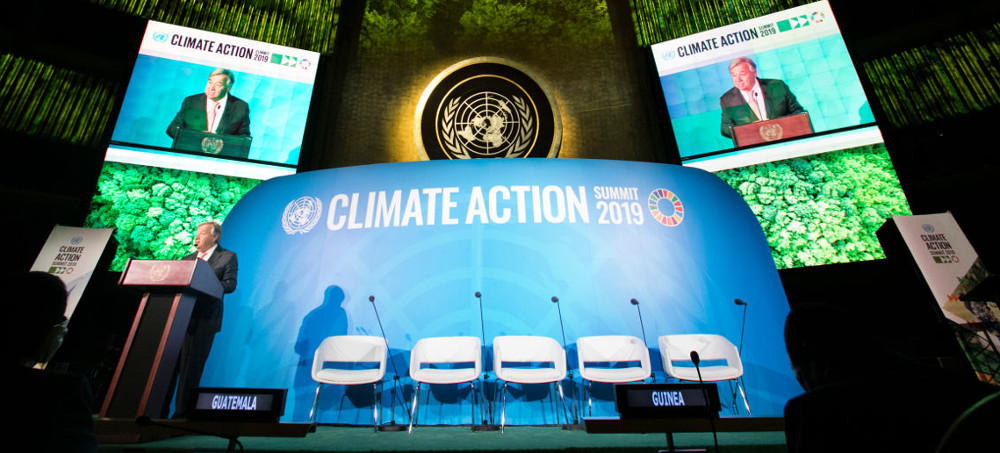 Conflict and Covid make these troubling times, but national leaders must cooperate and take action now. (photo: AP)
Conflict and Covid make these troubling times, but national leaders must cooperate and take action now. (photo: AP)
Conflict and Covid make these troubling times, but national leaders must cooperate and take action now
You might think that political leaders could have no higher priority than securing a “liveable and sustainable future”. Is that not what all of us, in every country, need and want for ourselves and for future generations? It is true that other issues are causing grave concern in many societies: governments worldwide are tackling poverty and hunger, wars and civil conflicts, the rising cost of food and energy, health systems and economies crippled by Covid-19.
But as three former UN climate chiefs, let us be clear: as the world’s first major environment summit - the 1972 Stockholm Conference on the Human Environment - recognised, the crises in security, health, development and the environment are linked. They are loading stress upon stress, especially in the most fragile and conflict-torn parts of the world. The myriad reports of extreme weather we have witnessed in 2022 suggest there is no time to waste.
The further climate change progresses, the more we lock in a future featuring more ruined harvests and more food insecurity along with a host of other problems including rises in sea level, threats to water security, drought and desertification. Governments must act against climate change while also dealing with other pressing crises. We recall the Barbados prime minister, Mia Mottley’s words at Cop26: “The leaders of today – not 2030, not 2050 – must make this choice.”
The United Nations Framework Convention on Climate Change was adopted 30 years ago. In our time leading its secretariat, we have witnessed commitments and pledges that have not been fully honoured. While developed countries accepted the convention’s principle of equity and thus their responsibility to lead climate action, their performance has been disappointing, not least in reducing their emissions of greenhouse gases and in mobilising financial support for developing countries that need it.
In the 2015 Paris agreement, all governments agreed to “pursue efforts” to limit global warming to 1.5C (2.7F). We are entitled now to ask where their efforts have reached, where they are heading and how genuine they are. Science shows action this decade to reduce all greenhouse gases is critical. But the sum total of policies in place now will take us to a world hotter by 2.7C and perhaps a catastrophic 3.6C above pre-industrial levels.
If science has not persuaded most governments to act, perhaps economics will. The IPCC provides clear evidence that societies will be more prosperous in a world where climate change is constrained, than in one left to burn. In the energy sector, evidence of the zero-carbon transition is all around us. Wind and solar generation shows compound growth of about 20% a year and is cheaper almost everywhere than the alternatives. Electric car sales doubled between 2020 and 2021.
Unless one is invested in fossil fuels, there is now no reason not to take the clean energy path. Many corporate actors understand the need for early action on this front. But governments still need to incentivise the transition. The evolving Just Energy Transition packages may yet offer an investment pathway that can accelerate deployment in emerging and developing countries. Corporate action towards other targets such as reduction of methane emissions, also needs to be encouraged.
If economics should give us hope for accelerating action despite the host of other issues menacing our times, then so should history. Fifty years ago the international community faced a similar litany of troubles: depletion of natural resources, desertification, the legacy of atom bomb testing, mercury contamination, cold war proxy conflicts. Geopolitics split the world. Yet at the 1972 Conference on the Human Environment in Stockholm, leaders agreed to cooperate on threats faced in common.
Now, with geopolitics made frosty by superpower disagreements and with nations bleeding from Covid and conflict, the world’s people need their leaders once more to work together. Governments have acknowledged that their window of opportunity to avert dangerous climate change is closing and have admitted the perils that failure will bring. Rapidly changing economics mean that a climate-safe future is also a more prosperous one. The will of the public – especially among young people – to see climate change constrained is clear.
As we recall the Stockholm conference on its 50th anniversary this week, we need national leaders to recall what it demonstrated about the potential of cooperative action even in disturbed times. We need to see leaders delivering on their climate change promises, in the interests of people, prosperity and the planet.
China is the right wing punching bag.
Look in the mirror!
https://en.wikipedia.org/wiki/Renewable_energy_in_China
US PER CAPITA ENERGY CONSUMPTION 6917.4
CHINA PER CAPITA ENERGY CONSUMPTION 2964.1
https://en.wikipedia.org/wiki/List_of_countries_by_energy_consumption_per_capita
Follow us on facebook and twitter!
PO Box 2043 / Citrus Heights, CA 95611



No comments:
Post a Comment
Note: Only a member of this blog may post a comment.